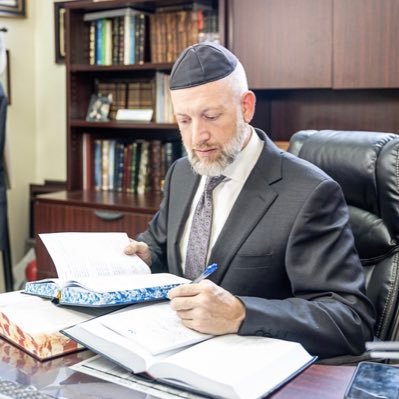The question of having limited supply of liquid and how to allocate it to dehydrating people should be purely theoretical in 2022, and yet the country is currently suffering a baby formula shortage that literally threatens the lives of thousands of babies and infants who rely exclusively on formula to survive. Some mothers describe driving to 20 stores a day to find formula. Nationwide, nearly 50% of baby formula is out of stock. The situation is so dire that this week President Biden invoked the Defense Production Act to increase baby formula manufacturing and make it more available immediately.
Two thousand years ago, our sages (Bava Metzia 62) analyzed a hypothetical dilemma around a question of shortage. Two people are lost in a desert and one of them has water, but only enough for one person. Should the owner of the water keep it to himself, drink it all, and survive? Or, should he or she share it, split the water with the other person, though it means both will surely die? Alternatively, perhaps he should give the other person the water so that they will live, even if it means giving up his own life. What is the moral decision? What would you do?
What if your companion in the desert was your child? Should you split the water? Give it all to them? Drink it all yourself? A few years ago, French tourists David and Ornella Steiner were found dead in the white sand dunes of the New Mexico desert where they had been hiking. Their ten-year-old son Enzo was found alive in the 101-degree heat. Police said they believed that the son survived because the parents decided to give him the bulk of their dwindling supply of water. For each sip they each took, they gave him two which was just enough to keep him alive, even though it cost them their lives.
So what is the right thing to do?
In the Gemara cited above, Ben Petura argues that the two people must share the water, for mutav she’yishtu sh’teihen v’yamusu v’lo yir’eh echad b’misaso shel chaveiro, better they both die and neither watch their friend perish. Rebbe Akiva disagrees and quotes a pasuk from this week’s parsha: “V’chai achicha imach – Your brother shall live together with you.” Only once your own survival is assured are you obligated to concern yourself with the well-being of the other. Rebbe Akiva, the same person who famously taught us that loving others as we love ourselves is central to Torah, concludes that we must put our self-preservation and survival first and only then save others.
The Chidushei HaRim adds something remarkable. True, we conclude like Rabbi Akiva that your life comes first, but from the Gemara it is clear that one should feel it is a dilemma, one should want to give the water to save their companion. Understanding that our instinct and our intuition should be to help another, even at our own expense, the Torah needs to explicitly say no, your life comes first. We should not only be aware of and follow the conclusion but we should also learn from the initial thought. Yes, we drink it ourselves. But all the while, we should still desire, we should want to give everything to help a fellow Jew.
There are times that morally and halachically we must put ourselves first. But even in those moments, our instinct, our natural response, should be to want to give, to help, to do for another, even if it means having less or losing out ourselves.
Developing a giving nature is not just a nice middah for interpersonal relationships. It is a religious imperative, it is how we get close to Hashem, it is how we imitate Him and serve Him.
While many are scrambling for themselves, we can be very proud of our community who responded to this crisis by turning outward and caring about other. Led by Amy Zuckerman and our amazing new Director of Member Engagement, Talia Borenstein, BRS created an emergency baby formula gemach to help stock and provide formula for families in our community who need.
Whether you are affected by this crisis or not, we must always be looking for opportunities to work on our giving nature and working on ourselves so we are not always putting ourselves first.


















